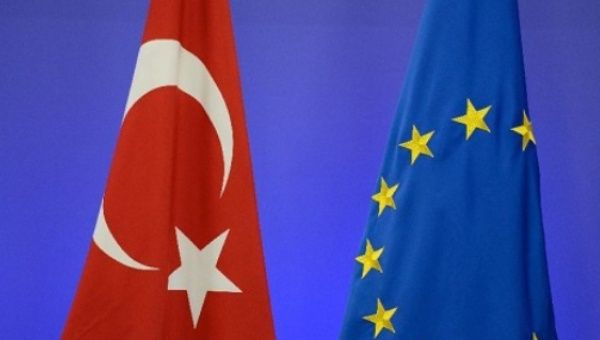Published 23 January 2017 (11 hours 23 minutes ago)
We are at a turning point for Turkey as terrorist attacks have increased, the economy slows and events have tarnished international observers' views of the country.
It was July 15 and I had just arrived in the magical city of Istanbul for the first time. I spent the afternoon and evening exploring the magnificent historical sites of the Sultanahmet neighborhood including the Blue Mosque, Hagia Sofia and Grand Bazaar. Following a romantic dinner on the terrace of a traditional Ottoman restaurant overlooking the Bosphoros and modern city on one side against the iconic backdrop of the historic city on the other, I was unaware that this juxtaposition of Turkey’s Ottoman past with its modern present would take an unprecedented turn.
ANALYSIS:
While walking through Sultanahmet Square later that evening, there were three members of the military running, one of them with their weapon and phone out. I thought the situation was odd and headed back to my hotel.
As soon as I returned to the hotel, I saw the news of the ongoing coup d’état unfolding in the same peaceful city I was just watching from a distance. After a sleepless night ducking from the F-16s flying low that were felt from my hotel room, I watched the sunrise from the terrace with the hotel staff and other guests from all corners of the world relieved that the country had returned to civilian control.
And so I spent my first 12 hours in Istanbul. Call it destiny, but this experience has fostered a special bond between Turkey and me — its resilient and hospitable people, historical legacy, entrepreneurial spirit, and global role as a connector across time and space.
Having shared a piece of this national trauma that took nearly 300 lives and injured more than 2,000 people, I am hopeful that Turkey can benefit from this moment as a platform of national unity to strengthen its democracy and rise anew.
Months later, we are at a turning point for Turkey, as terrorist attacks have increased, the economy slows and such events have tarnished international observers’ views of the country, which make these ideas even more timely for paving a constructive path forward.
Include All Political Parties in Decision-Making Following the Failed Coup
Immediately after the coup began, Turkish citizens and their political parties decisively chose the democratically elected leader, with all his virtues and flaws, to lead the country versus the return to military rule that took place in 1980, 1971, and 1960. By revisiting the inclusion of all political parties, Turkey has the opportunity to offer civilians living in Turkey’s Kurdish region an indestructible alternative to terrorist activities and help rebuild a critical region to reach Turkey’s full economic prowess and social cohesion. Current proposals for a new constitution in Turkey could be a vehicle toward unity when approached from this vantage point.
Embrace Open Internet Platforms and Social Media
The coup attempt failed because of open communication networks. President Erdogan spoke to the nation via a FaceTime application and could mobilize Turkey’s people to protect the country’s democracy precisely because of independent media, open Internet platforms, and the high rate of social media penetration and Internet connectivity. Through these channels, Turkey was able to send the message to the world of the horrors unfolding in the country’s Parliament and on the streets of Ankara and Istanbul. Likewise, international news outlets that saw the military coup as an initial success were quickly proved wrong by images and first-hand accounts posted on Twitter, Facebook and YouTube.
Cyber-security and policing the Internet from extremists and violent elements has been challenging in Turkey and has led to large-scale internet outages that disrupt people’s daily life and business transactions. This approach can be enhanced through international cyber cooperation with trusted partners. In short, Turkey has much more to gain politically, economically, and socially through open internet networks than closed. The failed coup attempt, more than any single moment in Turkey’s recent history, supports this view that the internet and social media is more of an asset than a liability.
Continue Deepening Anti-Terrorism Cooperation with Allies and Neighbors
Turkey has faced an unprecedented number and source of terrorist attacks over the past year. The country’s intelligence networks remain strong while the post-coup environment has fundamentally altered the Turkish military as an institution, discharging thousands of highly-trained officers, and bringing it under civilian control — a feature of many of the world’s strongest democracies. In recent months, Turkey has expanded security cooperation with Russia to help bring peace in Syria and improve the over-500-mile border that Turkey shares with Syria. This newfound alliance with Russia, combined with public statements indicating a pivot toward the East and the Shanghai Cooperation Organization, have undermined Turkey’s role as a leading NATO ally. Hosting a NATO Summit in Turkey would reaffirm its commitment to the alliance and help other countries understand the unique threats that the country is confronting.
Improvements in the security landscape will have broad and deep positive effects for Turkey’s economy, social cohesion, and overall quality of life. Tourism accounts for more than 12 percent of Turkey’s GDP and will likely rebound once 6-8 months pass without a major terrorist incident.
Bold actions such as these taken toward enhancing Turkey’s political, social, economic, and security future will move the country closer to its goal of being among the top-10 G20 nations. In summary, the solutions to the many challenges Turkey faces lie within.
Geovanny Vicente Romero is the founder of the Dominican Republic Center of Public Policy, Leadership and Development (CPDL-RD). He is a political analyst and lecturer based in Washington, D.C. Reach him on Twitter @geovannyvicentr.

No hay comentarios:
Publicar un comentario